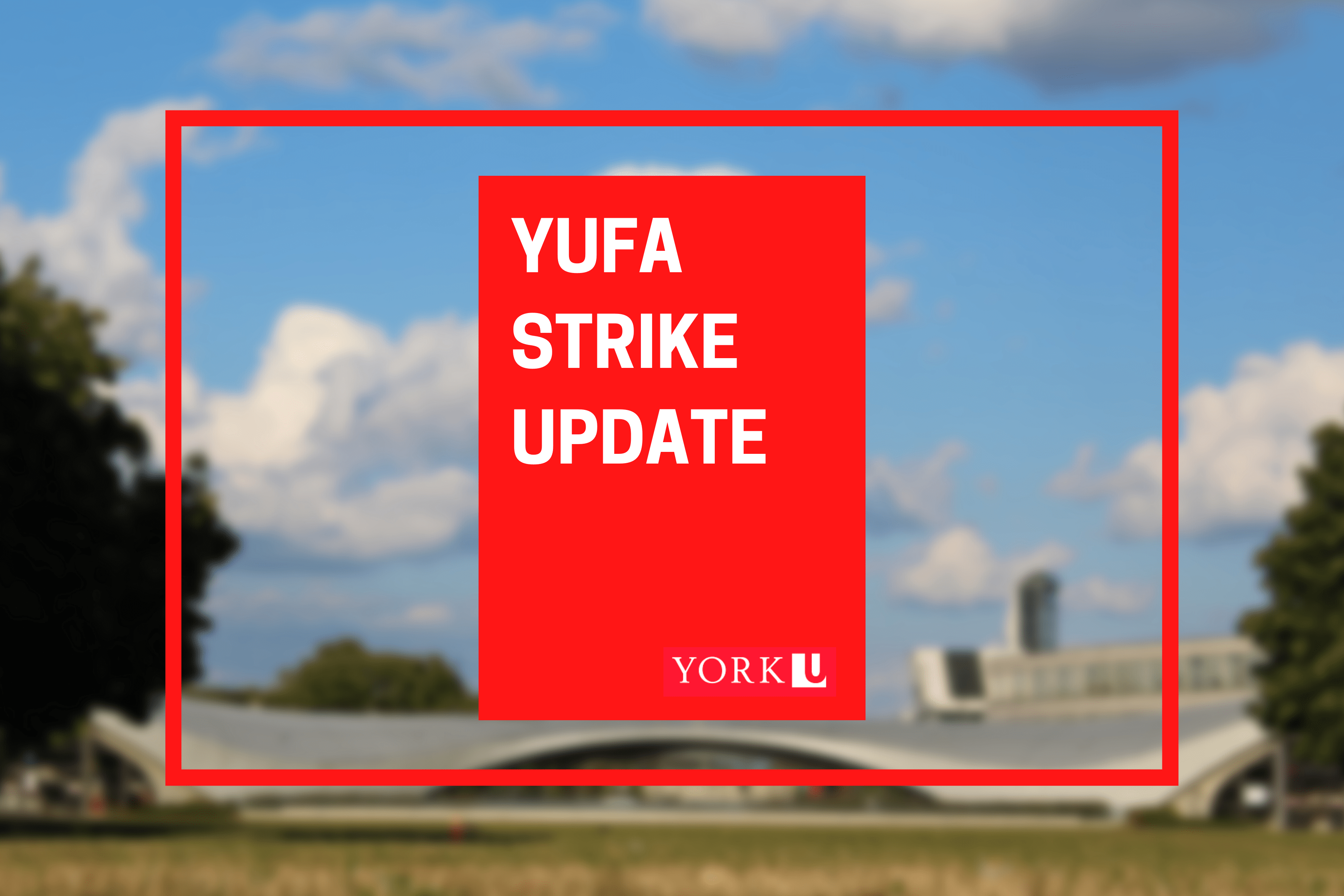The past week has been a quiet one for students in regards to the potential strike, with many left wondering what the next steps will be.
Professor Jody Berland, YUFA’s communications officer, refers Excalibur to the latest bulletin sent out to YUFA members.”After months of stalled negotiations, on March 8, the York University employer is finally responding to some of YUFA’s proposals.”
“We have secured two new mediation dates scheduled for March 15 and March 17. Mediation dates are now March 10, 12, 15, and 17 with a non-mediated bargaining session scheduled for March 22. Meditations will continue if a strike is called,” the bulletin states.
Berland adds that the strike date set for YUFA is March 24. “Our negotiating team is trying extremely hard to find a way to reach settlement with the administration. At present, we are not pleased with the administration’s lack of progress or its statements on its website that make it appear that the administration is speaking for YUFA, when we assure you, they are not.”
Yanni Dagonas, York’s deputy spokesperson, also refers Excalibur to the Community Updates, along with sharing that “the university’s bargaining team presented a comprehensive package of proposals aimed at resolving all outstanding matters in negotiations.”
“The university believes that this package is a step towards achieving a renewal collective agreement prior to March 24, 2022, at 12:01 a.m., the date on which a legal strike could begin if YUFA decides to call one,” Dagonas continues.
YUFA member Cameron Graham, professor of accounting at the Schulich School of Business, adds that faculty members are very concerned about the impact on students’ mental health that a strike could cause, especially just coming out of a global pandemic.
“Faculty members put an incredible amount of emotional energy into saving the winter 2020 term when the pandemic hit, adapting everything to online learning. But we know our students went through every bit as much stress as we did. We also know that many students would have great difficulty postponing graduation, for financial and other reasons, if a strike occurred,” Graham continues.
“We’re also concerned about our own mental health,” Graham adds. “Striking is incredibly stressful for employees, both financially and emotionally, and to be in this situation where the university administration has refused to negotiate meaningfully for almost a year, at a time when we have been bending over backwards to help the university deliver courses, is frustrating.
Graham adds that they know that the Ford government has “tied the university’s hands on salaries, and that the real problem here is Ford’s continued attack on government services and public sector employees. But the university administration is not making it easy to sympathize with them.”
As we near March 24, many students wait patiently for what will happen, as it appears that students, faculty and the university all commonly hope for a strike not to occur.




